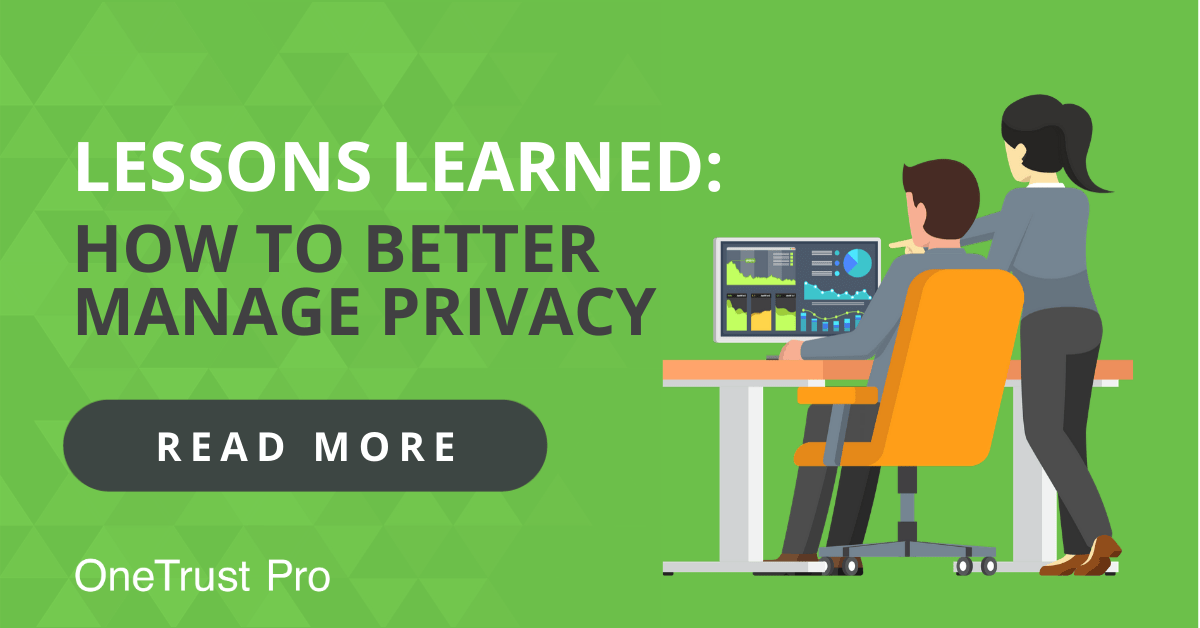What do Equifax, Facebook, and Target all have in common? Apart from being major corporations, each also suffered from a massive data breach in the past few years. And while these breaches made the top headlines, what you may not know is 15% of small businesses also experienced a cyber attack in 2019. =
That’s right. Even the smallest of businesses aren’t safe when it comes to online criminals. In 2019, 3,800 organizations had a data breach of some sort and that number is only expected to rise in years to come.
While the growing number of breaches is far from good news, there is a silver lining. With each breach, there are numerous data privacy lessons your small business can learn and apply to protect your own business. And what’s even better news is privacy management for your mid-market business doesn’t have to be complicated!
Follow these data management tips to better protect your customers while also protecting your small business.
Register for the Webinar: Why Growing Businesses Need a Privacy Program (and How to Get Buy-In) on May 28, 2020 at 1pm ET/10am PT
Be Transparent About Data Usage
Consumers today are bombarded with information from every angle. The last thing they need is more notifications for irrelevant deals or products. They want to know exactly how their information is being used. And that means doing some work on your end.
When asking for your customers’ data, be transparent about what it is being used for and what it will mean for them. Are they opting into email communications? Are they giving consent to receive text message notifications? Be upfront about why you’re requesting their information and be specific about how your business will use it.
Follow Privacy Regulations
Global privacy regulations are taking the world by storm, and they truly have the interest of your customers in mind. They’re also completely changing the way businesses can ask for consumer information. Though privacy regulations haven’t been enforced everywhere in the world, it’s better to be safe than sorry. Structure your small business around the regulations already in place.
To give you an idea of where to start, here are some of the most predominate privacy regulations to abide by:
General Data Protection Regulation
The GDPR is the data protection law in Europe. It was designed to give EU citizens more control over their personal data by requiring a business to enforce 7 data protection principles:
- Lawfulness, fairness, and transparency
- Purpose limitation
- Data minimization
- Accuracy
- Storage limitation
- Integrity and confidentiality
- Accountability
Get everything you need to know about complying with GDPR here.
California Consumer Privacy Act
The business requirements enforced by CCPA are very similar to those of GDPR, except it seeks to protect California consumers. Under CCPA, businesses are subject to:
- Notifying consumers in advance of personal data being collected
- Providing links on their website and mobile apps to prohibit selling their data
- Responding to consumer data inquiries within a set time frame
- Verifying the identity of consumers making requests
- Disclosing any financial incentives offered in exchange for the retention or sale of personal data, as well as how the value of this data was calculated
- Keeping records of any requests made under the act and how they were responded
- Maintaining data inventories and mapping data flows
- Disclosing data privacy policies and practices
Get everything you need to know about complying with CCPA here.
Depending on where you’re doing business, it’s important to understand the full scope of global data regulations your mid-market business may need to comply with.
Give Customers Control
To say providing your customers with data subject access rights is “important” would be an understatement. These rights can vary depending on the specific regulation, but the goal remains the same: businesses must offer customers an intuitive portal through which they can control their own personal information.
In doing so, not only are you being compliant, but you’re showing your customers that protecting their data is as important to you as it is to them. And that goes a long way when building customer loyalty!
Conclusion: Enforcing Data Privacy Doesn’t Have to be Complicated
From setting up data transparency notifications, building out a portal that gives your customers data control, and abiding by global regulations, it can be tough to know where to begin your small business’s data management journey.
But the good news is, you don’t have to do it all on your own.
OneTrust’s Pro allows you to do all this and so much more with a single, easy-to-use tool. If you’re ready to drive opt-in demand, demonstrate compliance, and protect your marketable universe, request a demo today.
Register for the Webinar: Why Growing Businesses Need a Privacy Program (and How to Get Buy-In) on May 28, 2020 at 1pm ET/10am PT



